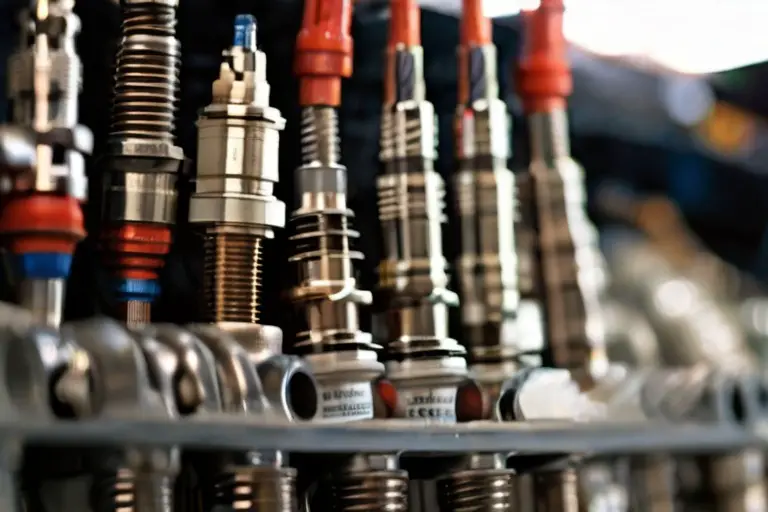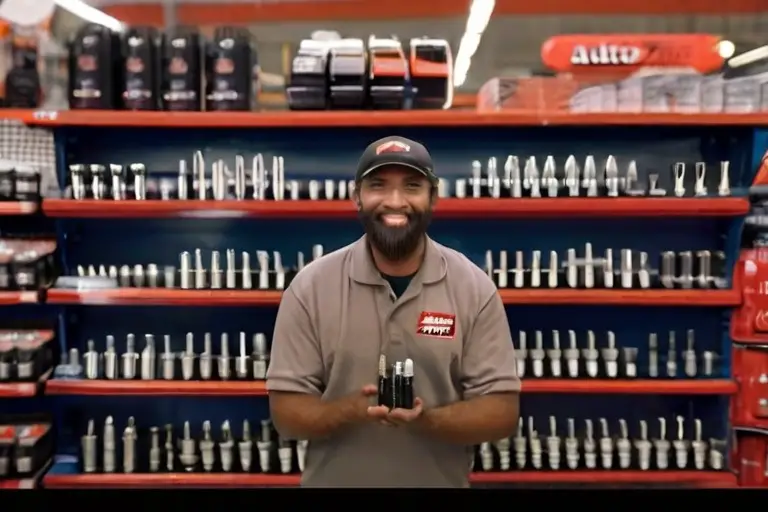If you’re a car enthusiast, you know that there are a lot of different factors that can affect your vehicle’s performance. One of those factors is the spark plug gap. But what is the spark plug gap, and does it really matter? The spark plug gap is the distance between the electrode and the tip of the spark plug. This distance affects how well the spark plugs fire. If the gap is too small, the plugs could misfire.
If the gap is too large, they could overheat and cause engine damage. So, does a spark plug gap matter? The answer is yes! The right spark plug gap can help your engine run more efficiently and improve your gas mileage. It’s important to consult your owner’s manual or a professional mechanic to find out what sizegap is best for your vehicle.
What is spark plug gap? [TECH BIT TUESDAY]
If you’re a car enthusiast, you know that there are a lot of variables that can affect your vehicle’s performance. One of those variables is the spark plug gap. The spark plug gap is the distance between the electrodes on the spark plug.
It’s important because it affects how much voltage is required to create a spark. A smaller gap requires less voltage, while a larger gap requires more voltage. So, does a spark plug gap matter? Absolutely! The right gap can improve your engine’s performance and fuel economy. It can also help prevent misfires and premature wear on your spark plugs.
Of course, finding the perfect gap for your engine isn’t always easy. It depends on a number of factors, including the type of engine, the type of fuel you’re using, and even the weather conditions. But it’s definitely worth taking the time to find the best possible gap for your car or truck.
Does Spark Plug Gap Affect Timing
When it comes to spark plugs, the gap between the electrodes plays an important role in engine performance. If the gap is too wide, the spark will be weaker and may not ignite the air/fuel mixture correctly. This can lead to engine misfires and reduced fuel economy.
On the other hand, if the gap is too narrow, the spark could jump across without igniting anything at all. The ideal spark plug gap varies depending on the application. For example, a smaller gap may be better for high-performance engines that operate at higher rpm levels.
It’s important to consult your vehicle’s owner’s manual or a qualified mechanic to find out what size gap is best for your car or truck. In general, you should only need to adjust the spark plug gap if you’re experiencing engine problems such as misfires or poor fuel economy. Always use a feeler gauge to measure the gap; never try to eyeball it! And when in doubt, always err on the side of a slightly narrower gap rather than going too wide.

What Will Happen If Spark Plug Gap is Wrong?
If the spark plug gap is too narrow, the spark will be weaker and may not ignite the air/fuel mixture. If the gap is too wide, the spark will be too strong and could damage the engine.
Is Bigger Spark Plug Gap Better?
When it comes to spark plugs, the general rule of thumb is that a bigger gap is better. This is because a bigger gap allows for more sparks to be emitted, which in turn ignites the fuel-air mixture more effectively. As a result, your engine will run more efficiently and with less chance of knocking.
Of course, there are some exceptions to this rule. If your engine is running too hot, then a larger spark plug gap can actually cause pre-ignition and damage your engine. Conversely, if your engine is running too cold, then a smaller spark plug gap can be beneficial as it will help the fuel-air mixture to ignite more easily.
Generally speaking, though, most engines will benefit from a larger spark plug gap, and it’s something that’s definitely worth trying if you’re looking for ways to improve your engine’s performance.
Do Spark Plug Gaps Need to Be Exact?
No, spark plug gaps do not need to be exact. In fact, most spark plugs have a range of acceptable gap sizes that will work with the specific spark plug. However, if the gap is too large or too small, it can affect engine performance.
If the gap is too large, the spark may not be able to jump the distance and ignite the air/fuel mixture. If the gap is too small, the spark may be extinguished by fuel vapors before it has a chance to ignite the air/fuel mixture.
Does Spark Plug Gap Affect Performance?
Spark plugs are a vital part of any combustion engine, providing the spark that ignites the air/fuel mixture in the cylinders. The gap between the electrode tips of a spark plug is critical to its performance, and if it’s not set correctly, it can lead to all sorts of problems. A too-wide gap will result in a weak or intermittent spark, while a too-narrow gap can cause pre-ignition (detonation) and engine damage.
Getting the right gap isn’t difficult but does require careful measuring with a feeler gauge. Once you know what size gap your engine needs, setting it is simply a matter of adjusting the electrodes until they’re spaced correctly.

Frequently Asked Questions [FAQs]
What is a spark plug gap, and why does it matter?
The spark plug gap is the distance between the center and side electrodes, where the spark jumps to ignite the fuel-air mixture in the combustion chamber. This gap is crucial because if it’s too small or too large, the spark may not be strong enough or may not occur at the right time, causing poor engine performance, increased emissions, and reduced fuel efficiency.
How do I find the correct spark plug gap for my vehicle?
The correct spark plug gap for your vehicle can be found in the vehicle’s owner manual or a repair manual for your specific model. Alternatively, this information can often be obtained from the spark plug manufacturer’s website or customer service line.
How do I measure and adjust the spark plug gap?
To measure and adjust the spark plug gap, you’ll need a spark plug gap gauge or feeler gauge. Slide the gauge between the electrodes at the tip of the plug and read the measurement. If the gap is too large or small, gently bend the side electrode until the correct gap is achieved. Be sure to handle the plug carefully to avoid damaging the electrodes.
Can the wrong spark plug gap cause the engine to misfire?
Yes, if the spark plug gap is too wide or too narrow, it can cause the spark to be too weak or not occur at the correct time, which can result in engine misfire. This can cause the engine to run rough, decrease fuel economy, increase emissions, and potentially cause damage over time.
Should I check the spark plug gap even on pre-gapped spark plugs?
Yes, even though spark plugs often come pre-gapped for a general range of models, it’s essential to check and confirm the gap with a gauge. The gap can sometimes be altered during handling or shipping, and different engines may require slight adjustments for optimal performance.
Conclusion
Does spark plug gap matter? It’s a common question with a complex answer. In short, the gap between the electrode and the ground strap of your spark plug affects how well your engine runs. A wider gap can create more sparks, which can help if your engine is misfiring. However, a too-wide gap can also cause pre-ignition and engine damage. The ideal spark plug gap for most engines is .060 inches. You can check your owner’s manual or service manual to be sure.
